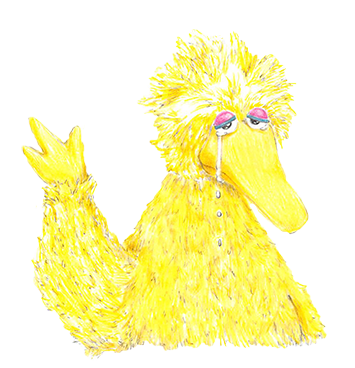Freshman and varsity soccer player Bailey Brand had control of the ball and was running with confidence toward the goal, only to slam her knee into the goal post during one of her games in the 2014 season. As she collapsed on the field, a series of curse words involuntarily spewed out of her mouth. It just so happens that by cursing, Brand’s brain was able to distract her from the pain.
According to a paper published in NeuroReport by Dr. Richard Stephens and Claudia Umland of Keele University in England, people can withstand immersing their hand in ice-cold water for a longer period of time if they swear during the experience. It is believed that when swearing, a person alerts the amygdala, a part of the brain that triggers the fight-or-flight response and prepares the body for pain. This trigger causes a surge in adrenaline, along with an increase in heart rate, which therefore increases pain tolerance.
But according to Dr. Timothy Jay, a psychologist at the Massachusetts College of Liberal Arts in North Adams, Mass., how a person feels after swearing creates a different kind of reaction.

“You could feel a number of emotions: frustration if you didn’t mean to swear, relief if you were angry at someone who deserved it, embarrassment or guilt if you swore in front of someone who would hold it against you, happy if you like swearing and revenge if you needed to get even with someone,” said Jay, who has studied the use of cursing for the past 35 years.
Upper School counselor Dr. Margaret Morse agrees with Jay.
She feels relief if she swears in private in response to frustration with herself, but she feels bad when she curses in front of her kids because she knows it upsets them.
Morse feels that swearing to relieve pain or frustration can be effective but does not find it helpful in interpersonal situations. She experiences relief articulating frustration through cursing when it’s not directed at somebody.
“When you’re holding a hot pot and you yell [a curse word], you’re able to endure it five seconds longer before you drop it because the pain is coming out in another way,” Morse said
Additionally, according to Morse, people would have trouble finding a way to release pain without swearing
Brand described swearing as her immediate response to pain. During a soccer game, in which she endures endless tackles and shoves from her opponent, Brand swears to let out her irritation and forces her opponent to leave her alone so she can redirect her concentration to the game.
According to Morse, the verbal relief lets out pent-up aggression, anger and pain.
Varsity soccer coach Rodney Skaife has seen many different forms of release throughout his career, and he thinks that swearing helps an athlete regain focus.
“When I was younger and I played a lot [of sports], in that instance where you got fouled or really got hurt, just to scream out or release something really did help,” Skaife said.
According to Jay, swearing can be beneficial if it is used to bring people together by generating laughter or if it replaces physical violence. However, if it is used as discrimination or hate speech, it is not appropriate or productive. In other words, it is important to distinguish when it is appropriate to swear or not.
“[Swearing] is an instant reaction, but you can learn to control that reaction,” Skaife said, using professional golfer Jordan Spieth as an example. When Spieth gets frustrated, he says his own name to release tension. Skaife believes this acts as Spieth’s substitute for swearing because he can’t swear on national television.
In his study, Stephens found that swearing can be used effectively to communicate powerful feelings or cope with difficult situations. However, the positive results of profanity will diminish when swearing is overused.
Though swearing doesn’t take away all the pain, Brand said, “It makes me feel better right afterwards because it makes me feel stronger and better about myself.”
-Amelia Brown








